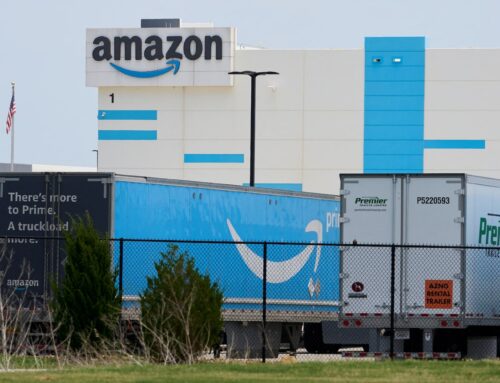Lawsuit alleges social media giants buried their own research on teen mental health harms
November 25, 2025
New York
—
Meta, YouTube, TikTok and Snapchat know exactly how addictive their platforms can be to teens. And they continue to target teen users anyway.
Those are allegations a group of school districts is making in a lawsuit against the social media giants, according to a newly unsealed legal filing that quotes the companies’ own internal documents.
“IG (Instagram) is a drug … we’re basically pushers,” Meta researchers said in an internal chat, according to the filing.
An internal TikTok report noted that “minors do not have executive mental function to control their screen time.”
Snapchat executives once acknowledged that users who “have the Snapchat addiction have no room for anything else. Snap dominates their life.”
And staffers within YouTube once said that “[d]riving more frequent daily usage [was] not well-aligned with … efforts to improve digital wellbeing,” the filing states.
The brief containing the internal comments, research and employee testimony has been presented as evidence in a massive lawsuit brought by hundreds of individuals, school districts and attorneys general from across the United States against the four companies — Instagram-parent Meta, Snap, TikTok and YouTube-parent Google — in the Northern District Court of California.
The platforms “deliberately embedded design features in their platforms to maximize youth engagement to drive advertising revenue,” the complaint claims. And the school districts allege that the social media companies have contributed to a youth mental health crisis that schools must address by investing in counseling and other resources.
The companies have sought to dismiss the case. Spokespeople forMeta, TikTok and Snap said the Friday filing paints a misleading picture of their platforms and safety efforts. CNN has also reached out to YouTube for comment.
The 235-page brief, made public on Friday and filed by the plaintiffs in the case, paints a picture of firms well aware that their apps could harm teens and children pursuingyoung users anyway to juice engagement and profit. It also cites internal documents suggesting the companies are aware that their wellbeing and parental control features have limited effectiveness.
CNN could not independently verify the accuracy of the comments and internal documents cited in the filing.
Parents, researchers, whistleblowers and lawmakers have previously raised concerns that tech giants prioritize profit over user safety, especially for young people. At a Senate hearing in January 2024, Meta CEO Mark Zuckerberg and Snap CEO Evan Spiegel apologized to parents who said their children had been harmed by social media.
The companies face growing legal pressure. In addition to the Northern California case, the four companies are defendants in a consolidated lawsuit in Southern California claiming that theyharmed young people’s mental health, which is set to go to trial in January. The companies have similarly pushed back on those allegations by claiming protection under Section 230, a law that shields tech companies from liability for users’ posts.
Each of the four companies has rolled out a series of youth safety and parental control features in recent years, such as “take a break” reminders, content restrictions for young users and default privacy protections. However, Friday’s filing alleges that, at least in some cases, the companies are aware those tools have limited efficacy.
The brief references internal documents from the tech companies indicating that researchers raised concerns about addiction and other mental health risks to young users and accuses the companies of hiding or downplaying those findings.
It cites, for example, a 2019 study Meta planned to conduct in partnership with Nielsen in which it would ask some users to quit Facebook and Instagram for a month and log how they felt afterwards. But after “pilot tests” of the study showed that people who paused their Facebook use for only a week “reported lower feelings of depression, anxiety, loneliness, and social comparison,” Meta allegedly stopped the research project.
“One Meta employee warned, ‘if the results are bad and we don’t publish and they leak, is it going to look like tobacco companies doing research and knowing cigs were bad and then keeping that info to themselves?’” the brief states, citing an internal conversation.
The filing mischaracterizes the study and Meta’s decision to end it, Meta spokesperson Andy Stone said. Meta researchers tried to design the study to overcome participants’ “expectation effects” — where users’ preexisting beliefs about the platform would color their responses. But the pilot showed the study design wasn’t able to account for this, “which is why this study didn’t continue,” Stone said in a post on X.
In a statement, Stone said of the brief that “we strongly disagree with these allegations, which rely on cherry-picked quotes and misinformed opinions in an attempt to present a deliberately misleading picture. The full record will show that for over a decade, we have listened to parents, researched issues that matter most, and made real changes to protect teens – like introducing Teen Accounts with built-in protections and providing parents with controls to manage their teens’ experiences. We’re proud of the progress we’ve made and we stand by our record.”
The filing raises questions about the family pairing tool TikTok rolled out in 2020 to give parents more control over what their teens can see and share on the app. One employee said that because teens could unlink their accounts from their parents’, Family Pairing was “kinda useless.” Another company leader said, “Family Pairing is where all good product design goes to die,” the filing states.
TikTok executives also allegedly rejected a proposal to adopt a screen time limit that would kick users off the app once reached. Less time spent scrolling meant “fewer ads,” which would have a “significant” impact on revenue. The current screen timetool gives users the option to enter a passcode to remain on the platform.
“This brief inaccurately rewrites our history and misleads the public about our commitment to youth safety in a cynical effort to gain an advantage in litigation,” a TikTok spokesperson said in an emailed statementto CNN.
Since the app’s launch, “we have invested billions of dollars in Trust & Safety, and rolled out 50+ preset safety, privacy, and security settings for teens, including private accounts, content restrictions, and screen time tools. The plaintiffs’ claims distort this track record, along with the meaningful work we do with respected child-safety organizations to collaboratively build a healthier digital ecosystem,” they added.
The briefing also alleges that late night notifications, beauty filters that alter users’ appearances and endlessly scrolling feeds across Instagram, Snap, YouTube and TikTok have undermined users’ wellbeing.
YouTube, for example, recognized that short-form videos can trigger an “addiction cycle” but developed its Shorts feature anyway, according to the filing. An internal Snapchat document identified “infinite scroll and autoplay as ‘unhealthy gaming mechanics’” and observedthat users “feel obligated” to maintain contactstreaks with friends, “which ‘become[s] stressful,’” the document states.
“The allegations against Snap in this case fundamentally misrepresent our platform,” a Snap spokesperson said in a statement. “Snapchat was designed differently from traditional social media — it opens to the camera, not a feed, and has no public likes or social comparison metrics. The safety and well-being of our community is a top priority … We’ve built safeguards, launched safety tutorials, partnered with experts, and continue to invest in features and tools that support the safety, privacy, and well-being of all Snapchatters.”
A Google spokesperson said in a statement to CNBC that “these lawsuits fundamentally misunderstand how YouTube works and the allegations are simply not true.”
Plaintiffs in the suit are seeking a jury trial, claiming in the brief that the tech giants have created a “public nuisance that burdens schools and communities.”
Search
RECENT PRESS RELEASES
Related Post



